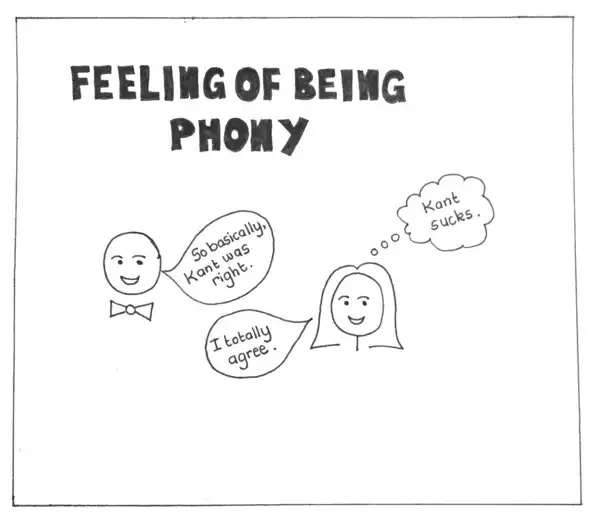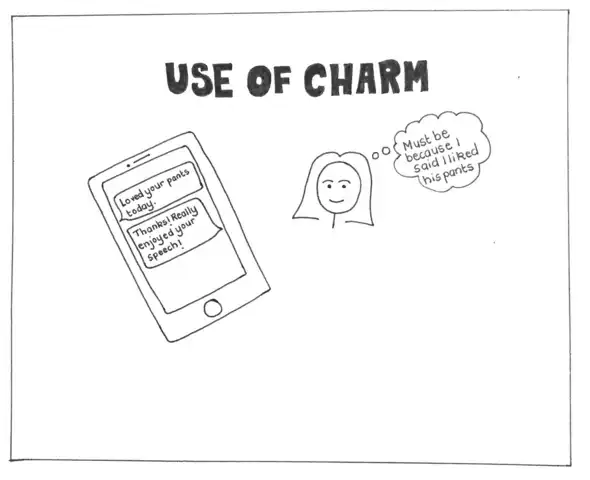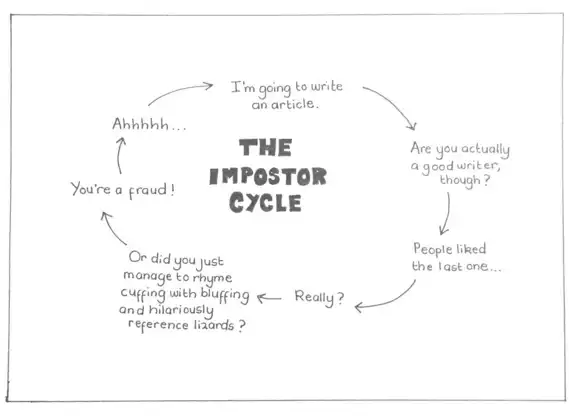She's An Imposter!
The wonderful tale of Jonathan and Jane, who suffer from the ever real, Imposter Syndrome.
Meet Jonathan.

Jonathan is a hypothetical NYU Shanghai student. He’s 20 years old, a sophomore and is from somewhere in the middle bit of ‘Murica. He is currently majoring in Economics, sporadically speaks Chinese and is working hard to bust out of the friendzone with his special someone.Jonathan is a regular student. Or as regular as you can be in the netflix-and-chill, feel the Bern, climate change is actually an issue, too-much-information generation. He goes to school, does well at school, participates in extra-curriculars, hangs out with his friends, sleeps, eats and repeats.But Jonathan is harbouring one dirty little secret. Jonathan thinks he is an impostor.Jonathan isn’t alone. Impostor Syndrome is an actual thing. It was coined in 1978 by clinical psychologists Pauline Clance and Suzanne Imes and describes the inability of high achieving individuals to internalise their accomplishments. Basically the fear of being a fraud. Despite being “highly motivated to achieve,” the overwhelming feeling of phoniness creeps in and suddenly sufferers are drowning in a pool of their own fictional incompetence. All day, every day.But back to Jonathan. See, the thing is the contributory factors of Jonathan’s success are different in the eyes of the world and the eyes of Jonathan.

At this point, Jonathan’s mindset might be sounding increasingly familiar. Which is because the syndrome is estimated to affect 70% of the worldwide population. Yup, statistically you are probably like Jonathan.Actually if we are going to talk statistics, Jonathan is more likely to be a Jane. Research has found that Impostor Syndrome is more prevalent in women, although there is some dispute as to whether that is actually true. It seems true. Women, undervalued and repressed by the patriarchy, seem more inclined to be feeling like an impostor. But then again men are also affected by inequality. In reality all genders are probably equally inclined to feel like a fraud, but socially it isn’t exactly considered masculine to be unsure about oneself. Men are supposed to be confident, beer-guzzling, courageous providers ... right?

But remember the two psychologists? Well they found three distinct behaviors of high-achieving women with Impostor Syndrome. Jane exhibits them all.

Gifted people work extra hard to avoid being exposed as a fraud. Jane over prepared and obsessed over the little details in her essay. She attributed her A to not sleeping for 72 hours. rather than her aptitude for alliteration and ability to spell words, like rendezvous, without the assistance of Siri.

People suffering from Impostor Syndrome often provide the answers they think people want to hear. This makes Jane feel more like a fake. Agreeing with her (arguably) misguided professor only perpetuates Jane’s feelings of fraudulence.

When receiving praise or recognition, people who think they are impostors can think it is based on charm and not ability. Jane did really like Jonathan’s pants and Jonathan really did like Jane’s speech. They weren’t necessarily connected, but in Jane’s mind compliments come in twos.Scarily Jane and Jonathan are trapped. Trapped in the perpetual phoniness of The Impostor Cycle.

This gets even scarier because it often means people who suffer from Impostor Syndrome prevent themselves from achieving their true potential. It can limit exploration and the courage to try new things. Make you scared to be innovative and different. C’mon Jane. C’mon Jonathan. You are your own problem. Naturally doubt is part of the process, especially with creative pursuits. Literary genius Maya Angelou and actress come model come badass feminist Emma Watson are notorious sufferers. There was a point where even they thought their writing was a bit naff and their speeches were bluffs. It isn’t necessarily bad to question yourself, but it is an issue when these questions consume you. So what can be suggested to our J-named friends? Well Impostor Syndrome is not a formal mental disorder, so therapy is for suckers people who haven’t quite done their homework. The best cure is actually just acceptance. Once you realise that your paralyzing fear has a name and the associated feelings might not be as simple as they seem, the mere thought of doing so allows the unmentionable to enter your head; What if I’m good at something?Because you probably are good. In the words of the most hypocritical advice I have ever given, there is a fine line between modesty and self deprecation. You don’t have to be like Jane and Jonathan. Being an impostor sucks, so just be you. This article was written by Stephanie Bailey. Please send an email to managing@oncenturyavenue.com to get in touch. Photo Credit: Stephanie Bailey.